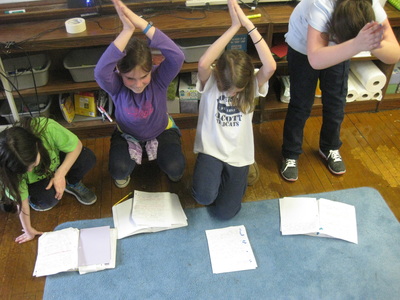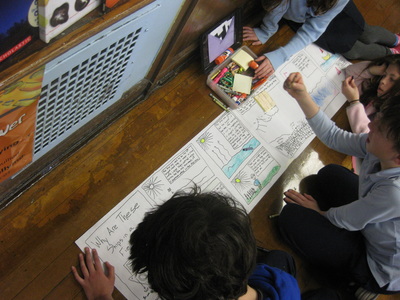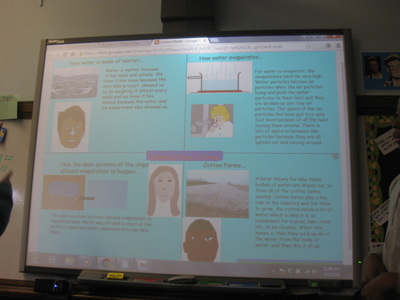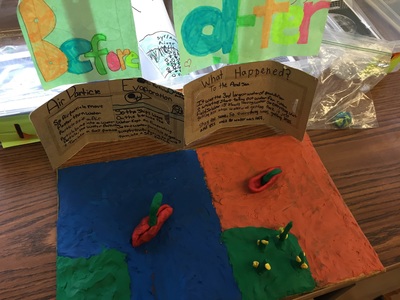From skits to songs to comics to physical models to Google Drawings, 5th graders showcased their learning of how the ships got in a field by completing an alternative assessment. This science unit was based on real phenomena that happened in the Aral Sea in central Asia years ago.
Students had to meet the following criteria for their assignment: click here.
Check out some of the evidence from their work!
Students had to meet the following criteria for their assignment: click here.
Check out some of the evidence from their work!
It was an incredible two days of presentations where students could show all that they knew in a way that was most comfortable for them. Being reflective, here's what some of the students said in response to alternative assessment:
"I like this much better because you got to act out, sing, explain, etc. and do the same things like answering questions on a test just not like that." -H
"I like this better because we had time to think. It was also fun to see how other people thought." - A
"Another good thing is that we get more feedback from this than from a test." - L
"I really enjoyed this project because I felt that it was harder and there were more mistakes that we could make, allowing us to learn and understand the topic more than a test." - N
"I thought this was way better than a test because our whole group got tot work together so if someone didn't understand something, we could help them." - C
Way to go fifth grade!
"I like this much better because you got to act out, sing, explain, etc. and do the same things like answering questions on a test just not like that." -H
"I like this better because we had time to think. It was also fun to see how other people thought." - A
"Another good thing is that we get more feedback from this than from a test." - L
"I really enjoyed this project because I felt that it was harder and there were more mistakes that we could make, allowing us to learn and understand the topic more than a test." - N
"I thought this was way better than a test because our whole group got tot work together so if someone didn't understand something, we could help them." - C
Way to go fifth grade!




 RSS Feed
RSS Feed